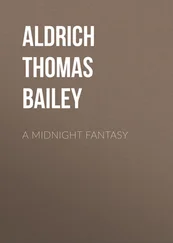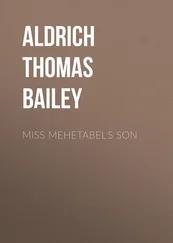Thomas Aldrich - Daisy's Necklace, and What Came of It
Здесь есть возможность читать онлайн «Thomas Aldrich - Daisy's Necklace, and What Came of It» — ознакомительный отрывок электронной книги совершенно бесплатно, а после прочтения отрывка купить полную версию. В некоторых случаях можно слушать аудио, скачать через торрент в формате fb2 и присутствует краткое содержание. ISBN: , Издательство: Иностранный паблик, Жанр: foreign_antique, foreign_prose, на английском языке. Описание произведения, (предисловие) а так же отзывы посетителей доступны на портале библиотеки ЛибКат.
- Название:Daisy's Necklace, and What Came of It
- Автор:
- Издательство:Иностранный паблик
- Жанр:
- Год:неизвестен
- ISBN:http://www.gutenberg.org/ebooks/30668
- Рейтинг книги:5 / 5. Голосов: 1
-
Избранное:Добавить в избранное
- Отзывы:
-
Ваша оценка:
- 100
- 1
- 2
- 3
- 4
- 5
Daisy's Necklace, and What Came of It: краткое содержание, описание и аннотация
Предлагаем к чтению аннотацию, описание, краткое содержание или предисловие (зависит от того, что написал сам автор книги «Daisy's Necklace, and What Came of It»). Если вы не нашли необходимую информацию о книге — напишите в комментариях, мы постараемся отыскать её.
Daisy's Necklace, and What Came of It — читать онлайн ознакомительный отрывок
Ниже представлен текст книги, разбитый по страницам. Система сохранения места последней прочитанной страницы, позволяет с удобством читать онлайн бесплатно книгу «Daisy's Necklace, and What Came of It», без необходимости каждый раз заново искать на чём Вы остановились. Поставьте закладку, и сможете в любой момент перейти на страницу, на которой закончили чтение.
Интервал:
Закладка:
THE LITTLE CASTLE-BUILDERS
The House by the Sea – the Round Window – God's Eyes in Flowers – the Day-Dreamers – A Picture – An Angel – Old Nanny – On the Sea-Shore – Shell-Hunting – Bell's Freak and Mortimer's Dream – Asleep.
Imagine, if you will, one of the quaintest old country mansions that was ever built – a big-chimneyed, antique-gabled, time-browned old pile, and you have a picture of the Ivyton House as it was in summers gone by.
The pillars of the porch were not to be seen for the fragrant vines which clambered over them; lip-tempting grapes purpled 1 1 Mr. Barescythe, with his characteristic word-catching spirit, wishes to know if grapes and cherries are ripe at one and the same time in New-England.
on the southern gable of the house, and the full, bright cherries clustered thicker than stars among the leaves. The walks of the garden were white with pebbles brought from the sea-shore; the dewy clover-beds, on each side, lay red with luscious strawberries, as if some one had sprinkled drops of fire over them; and among the larches and the cherry trees there was a salt sea-smell pleasantly mingled with the breathing of wild roses.
A large, round window in one of the gables looked toward the ocean – a fine place for a summer view, or to watch, of a gusty afternoon, the billows as they swell and break in long waving battalions on the beach.
One evening near the end of summer, two children were sitting at this circular window. Ten Aprils had half ripened them. The boy had dark hair, and a touch of sunlight in his darker eyes. The girl was light and delicate – with a face of spiritual beauty, dream-like, heavenly, like the pictures of the Madonna which genius has hung on the chapel walls of the Old World.
"Bell," said the boy, "we never grow weary of looking at the sea."
"No; because while we are watching, we think that father may be coming home to us across its bosom; and we count the waves as if they were moments. We like to see them roll away, and feel that time grows shorter between father and us."
"Yes, that is so," he replied; "but then, we love night almost as much as the sea."
"That is because we have a Father in heaven as well as one at sea," and the girl shaded her angel face with a dainty little hand.
"And we love the sunbeams and the flowers, Bell!"
"We do, indeed!" cried Bell, and the sunshine nestled among her curls. "We do, indeed! because God, like the good fairy in our story-book, comes in sunlight, or hides in flowers; and he reveals himself in ever so many ways, to all who love him."
"Hides in flowers," repeated the boy, musingly; "I never thought of that. Then, perhaps – only perhaps – the dew-drops which I showed you last night in the white japonica were God's eyes!"
"May be so," returned Bell, simply.
They were two strange children – nature, and, perhaps, circumstances had made them so. They were born and had always lived in the old house. Their mother was in heaven, and their father was one of those who go down to the sea in ships. With no one to teach them, save the old house-keeper Nanny, their minds had taken odd turns and conceits; they had grown up old people in a hundred ways.
The roar of the winds and the sea had been in their ears from infancy. In the summer months they wandered late on the sandy beaches, or slept with the silent sunshine under the cherry trees. They had grown up with nature, and nature beat in them like another heart. She had imbued them with her richer and tenderer moods.
Bell was the wildest and strangest of the two. She was one of those ærial little creatures who, somehow or other, get into this world sometimes – it must be by slipping through the fingers of the angels, for they seem strangely out of place, and I am sure that they are missed somewhere! They never stay long! They come to earth and sometimes ripen for heaven in a twelve month! The sweetest flowers are those that die in the spring-time: they touch the world with beauty, and are gone, before a ruder breath than that of God scatters their perfume. Bell was a Gipsy angel – one of those who wander, for awhile, outside the walls of heaven, in the shady pastures and by-ways of the world.
"Mortimer," said Bell, after a long silence, "how nice it is to sit here and watch the bits of sails coming and going – coming and going, never weary! I wonder how long we have sat at this window and watched the white specks? I wonder if it will always be so; if you and I will still be here, loving the sea and stars, when our heads are as white as Nanny's?"
"No!" cried the boy, impetuously. "I am going out into the broad, deep world, and write books full of wonderful thought, like the Arabian Nights!"
And he repeated it, the broad, deep world! Ah, child! what have such dreamers as you to do in the broad, deep world – the wonderful, restless sea, where men cast the net of thought and bring up pebbles?
"I would like that, Mort!" cried Bell, clapping her hands. "But then, what a grand place this would be to write them in! You can have your desk by the open window here; and when your eyes are tired, you can rest them on the sea. And I will be so quiet – as gentle as pussy, even, and do nothing but make pens for you all the time. Wouldn't that be fine?"
"Yes! and father should go no more away in ships. He might have a yacht to leap over the surge in, to sail around all those little islands and in the green bays; but never go off to sea. The books I am going to write will bring us money enough."
So the little castle-builders talked until the sun had melted into the waves, and twilight, like a pilgrim that had been resting by the roadside, rose up from the beach, and came slowly toward the old house.
Mortimer, who had been gazing dreamily at the beach – which grew fainter and fainter, till it seemed like a white thread running through the selvage of blue drapery – turned his eyes on Bell.
"Bell," said he, quietly, "as you sit there in the shadows, with your beautiful hair folded over your forehead, you look like an angel!"
"Do I?"
"I can put my hand on your neck, yet you seem far away from me."
"Come, rest your head in my lap, Mort," said the girl, tenderly, "and I will tell you of a real true angel who once came into this world."
The chestnut locks of the boy looked darker against her white dress, as Bell bent over him, and commenced, in a low, silvery voice, an old angel legend. She was in the midst of a strange description of Paradise, when a tremulous voice came up the stairway —
"Come to tea, children!"
Then the two looked at each other curiously. It was so odd to be called to tea, and they in Heaven! It was a long step from Paradise to the supper-table; but the dream was shattered. Bell laughed. Then they closed the window, and descended to the room below, where Nanny had prepared the evening meal of snowy bread and milk, and ripe purple whortleberries. It was very queer to see the three sitting at table – to see homely-looking, but kind-hearted Nanny, between the two children, like a twilight between two pleasant mornings.
When supper was over, and while Nanny was washing the tea-things, the children went down to the beach, shell hunting. The white moon stood directly over the sea, and the waves were full of silvery arrows, as if Diana had scattered them from her quiver. Mortimer's eyes drank in the sight, as they had a thousand times before, for Nature is ever new to her lovers. In the measured roll of the sea, he heard the diapason of a grand poem, and the far-off thunder, heard now and then, was the chorus of the gods.
But Heaven rapt the heart of little Bell! The waves fell on her finer ear like subtlest music; to her they were harps, and the fingers of angels were touching them, while the thunder was "God walking overhead!"
Читать дальшеИнтервал:
Закладка:
Похожие книги на «Daisy's Necklace, and What Came of It»
Представляем Вашему вниманию похожие книги на «Daisy's Necklace, and What Came of It» списком для выбора. Мы отобрали схожую по названию и смыслу литературу в надежде предоставить читателям больше вариантов отыскать новые, интересные, ещё непрочитанные произведения.
Обсуждение, отзывы о книге «Daisy's Necklace, and What Came of It» и просто собственные мнения читателей. Оставьте ваши комментарии, напишите, что Вы думаете о произведении, его смысле или главных героях. Укажите что конкретно понравилось, а что нет, и почему Вы так считаете.












